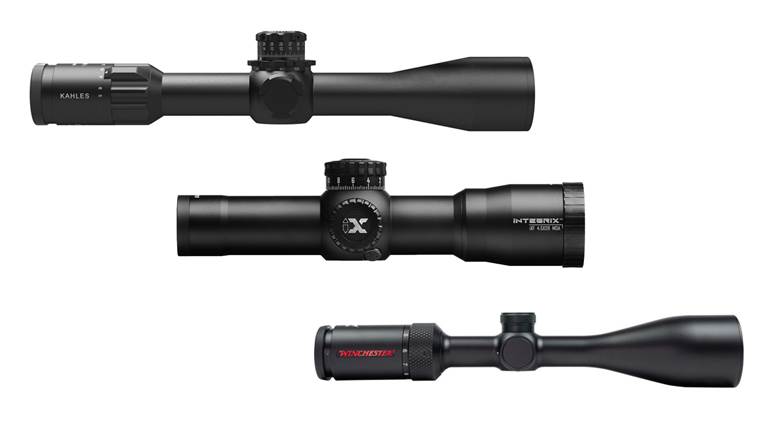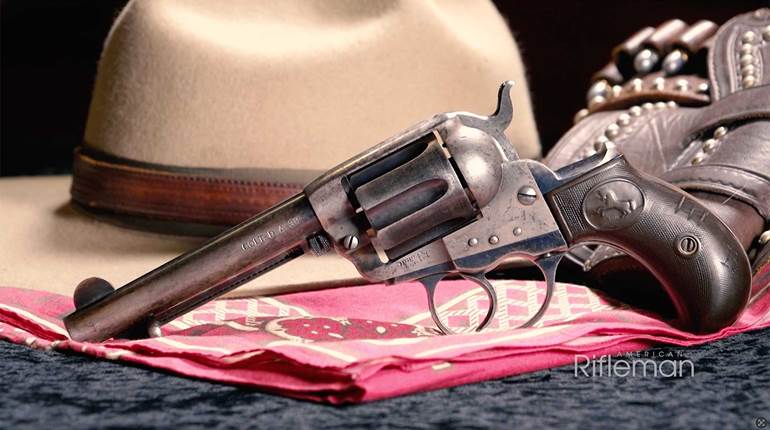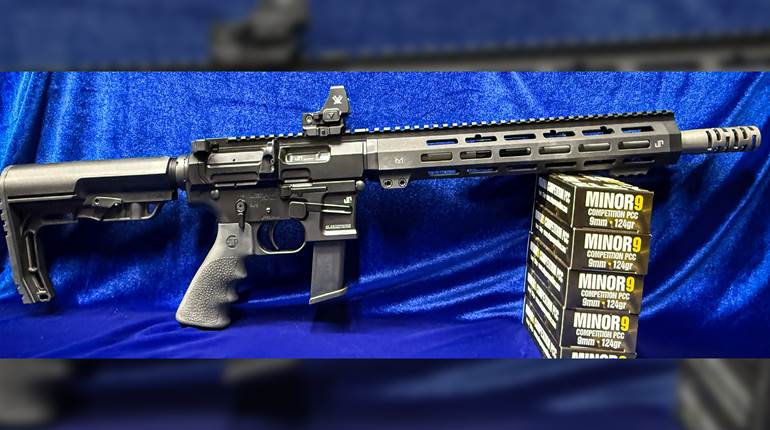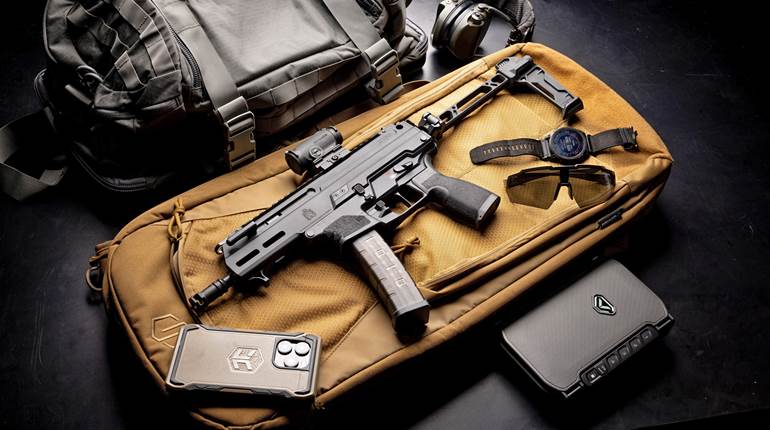
German Precision Optics (GPO) is a new supplier whose products are helping to make an already competitive marketplace that much more buyer friendly. GPO’s ambitious initial product offering, including 17 riflescopes and 11 binoculars, spans price points from quite affordable ($250-$300) to quite high ($1,800-$2,000), but doesn’t venture into genuine sticker-shock territory as the company name might suggest. Industry veterans and former colleagues Richard Schmidt (in Germany) and Mike Jensen (in the U.S.), are convinced their lean operating concept will translate to unique consumer value. 
The company name actually refers to the fact that, along with corporate headquarters, product design and engineering are done in Germany using processes that emulate the big-name European brands normally deemed the world’s best. The reality is that practically all familiar optics firms are global in some respects—sales, of course, but also product development, manufacturing and sourcing materials. In this case, the German designs are manufactured in Japan and other Asian nations.
“We make sure GPO products are built to our specs and that the factories we work with adhere to the tough quality-control we’re used to from our experience with other top brands,” said Jensen. “We use high-transmission glass and other prime components—the same as our competitors. We’ve even developed our own proprietary lens-coating—GPObright. What it all adds up to is this: We build higher-quality products with better features at similar prices or similar-quality products at better prices.” 
GPO’s extensive scope line incorporates many of the latest trends and technologies. The firm’s Passion scopes can be had in the following configurations: 1” tube/3X magnification; 30 mm tube/4X, 6X and 8X magnification. Objective lens sizes in this hunting/competition line range from 24 mm to 56 mm. If you need to pack light, trim 3-9X and 4-12X models weigh just 14 ounces, more or less. For versatility, there’s a 1-6X plus a couple 2.5-15Xs. If long-range is your game, the powerful 6-24x50 mm gets you there, and select models come with side-turret parallax adjustment. Passion reticle options range from traditional crosshairs like the Plex and German #4 to progressive Mil-Dot and a German #4 with illuminated red dot. (Passion ED 8 x 32 mm shown) 
But wait, there’s more. GPO Tactical scopes comprise a separate class altogether. Geared to AR-style rifles and long-range precision shooting, this sub-group consists of five more models utilizing either 30 mm or 34 mm tubes. Robustly built, fitted with wide-diameter turrets and mil-rad adjustments, the TAC line clearly draws on mil-spec DNA. Straight-tube 1-6X and 1-8X models boast the high-tech Horseshoe illuminated reticle, which is located in front focal plane on the latter model. The long-range products offer 5X or 6X zoom ranges, including 6-24x50 mm (shown) and 5-30x56 mm units equipped with mil-dot reticles and side parallax adjustment.
GPO binoculars also track from basic and affordable (starting at $350-$400) to impressive and salty (topping out at $1,300-$1,400), but likewise stop short of top echelon. It’s what some companies would call good and better on the good>better>best scale.
The chief differentiator between them is the glass, hence the respective Passion ED (good) and Passion HD (better) lines. With a couple of exceptions the EDs are more compact. Those with 32-mm objectives weigh just 17.6 ozs. while measuring under 5” in length; 42-mm models have a bit more heft at 23.6 ozs. and are 5.7” long. However there are also big 8x56 and 10x56 EDs, which go about 41 ozs. by 7.5” in length. The upscale HDs come with 42 or 50 mm objectives in magnifications ranging from 8X to 12.5X. These glasses are competitive with anything on the market in terms of weight and field of view, particularly in the very popular 8x42 and 10x42 sizes, and they also are upgraded with a center-focusing locking diopter.

Passion HD, left; Passion ED, right.
The entire stable is built on tough, lightweight magnesium bodies and hinges in an open-bridge design that eases gripping comfort. Their glass is also treated with GPObright high-tech coatings.
For a first-look trial we chose samples that reflected the company’s dual-pronged marketing strategy. A scope that impressed several NRA Publications editors is the GPOTAC 1-8X-24 mm (shown). Built like a tank on a 34 mm tube with a first focal plane illuminated reticle, this is the preferred configuration of many tactical operators but not one offered by a lot of companies, and leading models cost $3,000-plus. It so happens that GPO’s entry in this elite niche is their second-most expensive scope, but at $1,800 MAP, it will turn heads.
Mounted on a DPMS 24 Special, we fired groups while testing adjustment repeatability at 100 and 300 yds. Following the first groups on center bullseyes, we alternated shots in opposite corners spaced 5 moa apart in both windage and elevation. All six groups printed less than 1.25 moa, and while the original center groups were somewhat tighter, the others were respectable. The optical performance from this scope was also a highlight, delivering bright, clear images that fell just a couple ticks shy of a pricier Leica Magnus 1-6.3X a partner had on the range that day. For further info on this GPO flagship model, look for an American Rifleman “Dope Bag” review in an upcoming issue. 
On the binocular side we went to the bargain shelf and selected the Passion ED 32. This trim little unit is the firm’s cheapest bino at $360 MAP. At just 17.6 ozs., it proved well worth the tote during summer hikes on the Appalachian Trail. In fact the optical quality was surprisingly good, both in direct sunlight and shadow, and helped us to keep tabs on deer, turkeys and songbirds. At dawn and dusk, the performance fell off and certainly it doesn’t compare with bigger, more serious (read more expensive) glasses. While it’s not the ideal tool for long stints glassing faraway subjects, this bino really would serve many hunters’ needs just fine, specifically in cases where one uses them for brief and occasional looks at short to medium distances. Choosing a binocular is personal and rarely will anyone regret investing in a high-end model. Even so, eastern deer hunters, bowhunters, turkey hunters, waterfowlers and others really shouldn’t feel compelled to carry anything bigger and costlier. They’d also be a good optic to keep in one’s vehicle, handy when you need it. Noteworthy too, is that these glasses come in four color options—black, green, desert sand and dark earth, while all other GPO binos are dressed solely in basic black.
Naturally Jensen is eager for customers to gain awareness of the GPO brand. “My Arizona upbringing has had a strong influence on what we’re doing. I grew up on a gun shop floor, my father was a competitive shooter and USA shooting team coach and my older brother was a hard-core mountain hunter. So my outdoor DNA, with regards to accuracy, product quality and product durability, is what I am all about,” he says. “I’ve also spent years competing in tournaments and grinding up mountain ridgelines. So I make sure that when we design optical products, these products 100 percent fit the real needs of the market, that they are the best quality in the product segment, and that they will absolutely hold up when hunters and shooters are abusing them. We build what I would rely on.”
To see the full product line, visit gpo-usa.com.






































